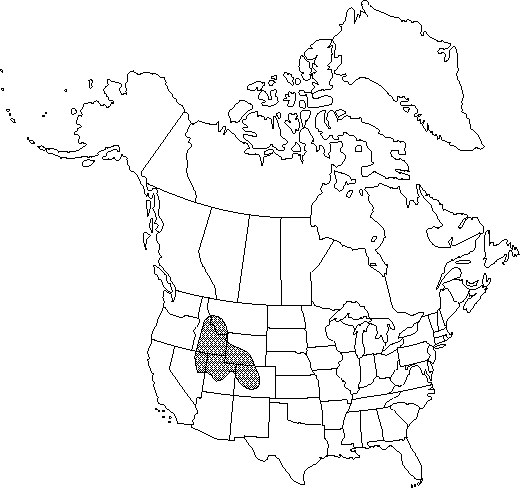Ranunculus adoneus
Proc. Acad. Nat. Sci. Philadelphia 15: 56. 1863.
Stems erect from large caudices, 9-25 cm, glabrous, each with 1-3 flowers. Roots slender, 0.8-1.4 mm thick. Basal leaves persistent, blades circular to reniform in outline, 2-3×-dissected into linear segments, 0.9-2.5 × 1.1-2.8 cm, base obtuse, margins entire, apices of segments narrowly rounded to acute. Flowers: pedicels glabrous; receptacle glabrous; sepals 4-11 × 3-7 mm, abaxially sparsely pilose, hairs colorless; petals 5-10, 8-15 × 8-19 mm; nectary scale glabrous. Heads of achenes ovoid, 6-12 × 5-9 mm; achenes 1.8-2.4 × 1-1.4 mm, glabrous or nearly so; beak subulate, straight, 1.2-1.7 mm. 2 n = 16.
Habitat: Spring-summer (May–Sep). Alpine and subalpine meadows, usually around melting snowbanks
Elevation: 2500-4000 m
Distribution

Colo., Idaho, Mont., Nev., Utah, Wyo.
Discussion
Most collections of Ranunculus adoneus from Colorado, including the type specimen, tend to be small, with narrow leaf segments (only 0.5-1 mm wide) and large flowers. The more widespread form, with leaf segments 1-2 mm wide and more variable flowers, has been called R. adoneus var. alpinus. The leaf and flower characteristics are very poorly correlated, however, and specimens referable to var. alpinus vary greatly in stature and flower size, so the two forms scarcely merit formal recognition.
Selected References
None.